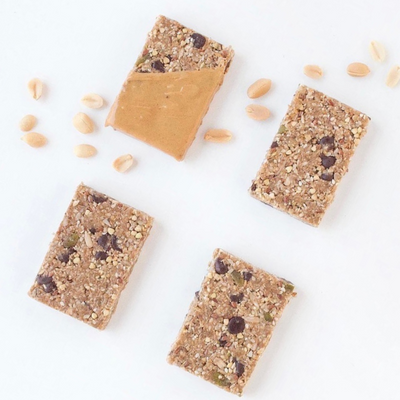The Truth About Seed Oils: Small Swaps for Big Impact
30th Jun 2025
Seed Oils
Seed oils are in everything from my “healthy” whole grain crackers to Doritos. With social media and the health community buzzing about the dangers of seed oils, it’s easy to get overwhelmed about what to eat. Are these oils really that bad, or is this just another trend?
What really are seed oils?
Seed oils are plant-based oils made from seeds like canola, sunflower, grapeseed, soybean, and even peanut. They’re widely used in both home cooking and processed foods because they’re inexpensive, have a long shelf life, and are easy to cook with. But here’s the issue: while seeds themselves are packed with nutrients, the process used to extract their oils often removes most if not all of those benefits. According to the Cleveland Clinic, seed oils are typically bleached, refined, and heated. This method effectively strips away naturally occurring vitamins like vitamin E and potassium.
So, while the original seeds may be good for you, the final oil is often highly processed and lacks the nutrients you’d expect.
Why are people talking about seed oils?
Recently, seed oils have been in the spotlight of health discussions. Why? Their high omega-6 content. Now, omega-6s aren’t inherently bad; actually, our bodies do need them. However, when we consume too many without balancing them with omega-3s (found in foods such as flax, chia, and fatty fish), problems quickly arise.
The ideal omega-6 to omega-3 ratio is about a 2:1 ratio, but the average American diet sits closer to 10:1 or higher. This imbalance can contribute to chronic inflammation, which is linked to health issues like heart disease, arthritis, type 2 diabetes, and weight gain.
While seed oils aren’t poisonous, their heavy processing and presence in nearly every packaged food raise valid concerns about their impact on our long-term health and the need for some serious rethinking.
What Should You Use Instead?
Thankfully, there are fantastic alternatives that are just as versatile and often more nutritious:
- Extra virgin olive oil – Great for dressings and low-heat cooking
- Avocado oil – Ideal for high-heat cooking
- Coconut oil – Popular for baking and medium-heat sautéing
- Ghee or grass-fed butter – Rich in flavor and beneficial fats
- Tallow – A traditional fat making a modern comeback
These fats often go through minimal processing, helping them retain their nutritional benefits and allowing for a more balanced diet.
Elemental was built on this very idea! We don’t use any seed oils. It’s just real, nourishing fats that contain naturally occurring, unprocessed omegas your body can actually use. That means our bars are a delicious, balanced way to support your health, without compromise.
Small Swaps, Big Difference
We’ve gotten in the habit of trusting food labels, but what if it’s time to start asking how our food is made, not just what’s in it?
Your body is always giving you feedback. When you start swapping out heavily processed oils for more nourishing fats, does your energy shift? How does your body respond?
If something as mundane as cooking oil can carry this much controversy, what else in our kitchens deserve a second look?
Just because something is common doesn’t mean it’s the right decision for you. So, what small change could you make today, and how might that have a ripple effect on how you feel tomorrow?
Why not choose to live deliciously?

